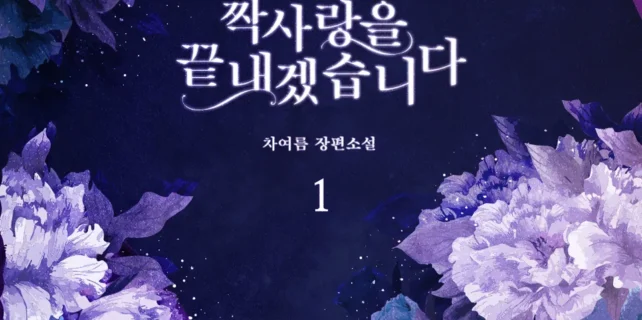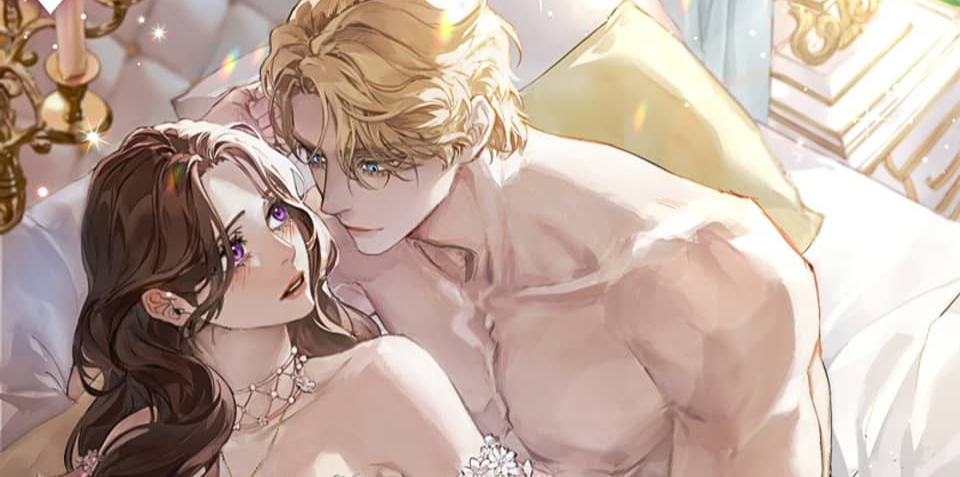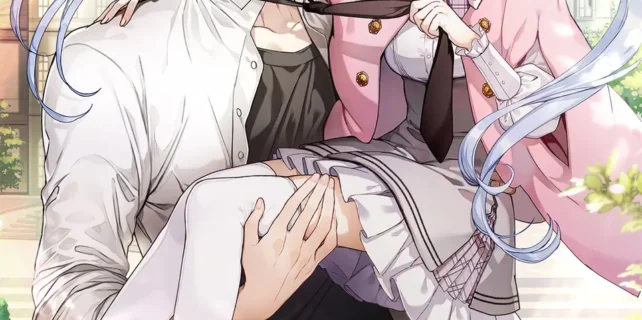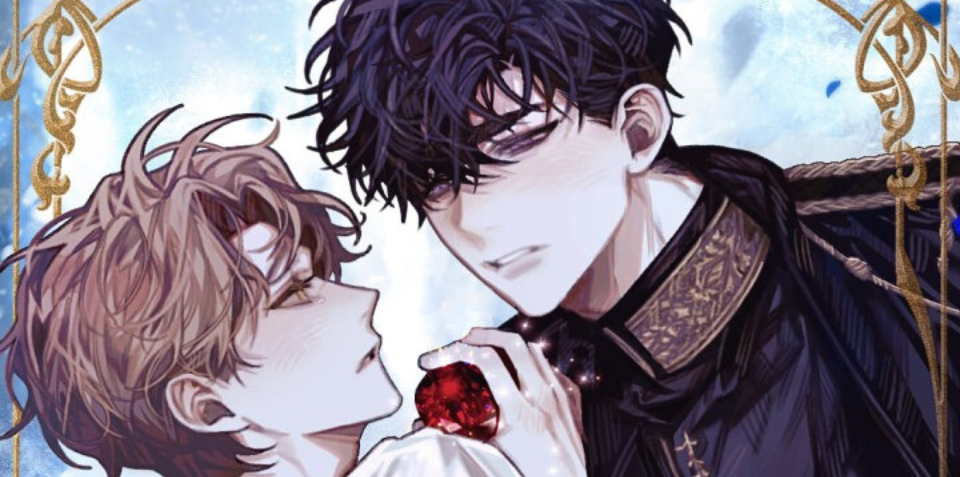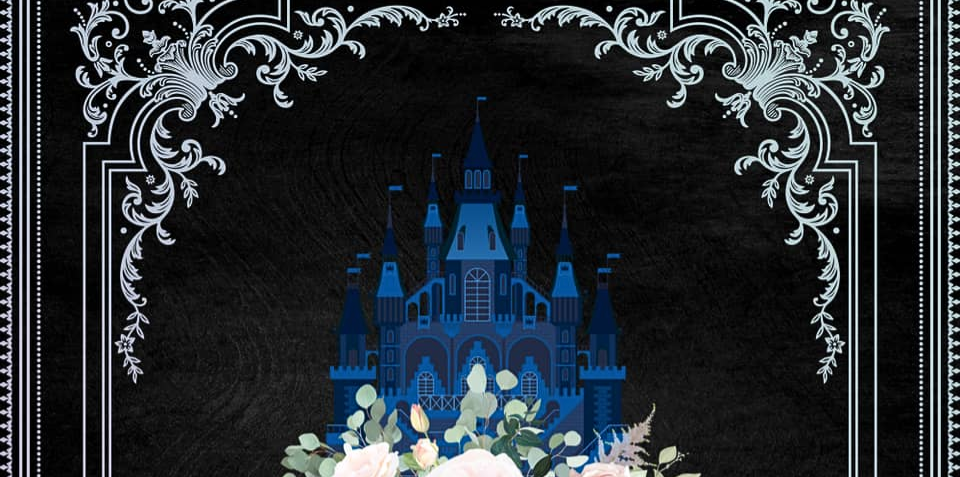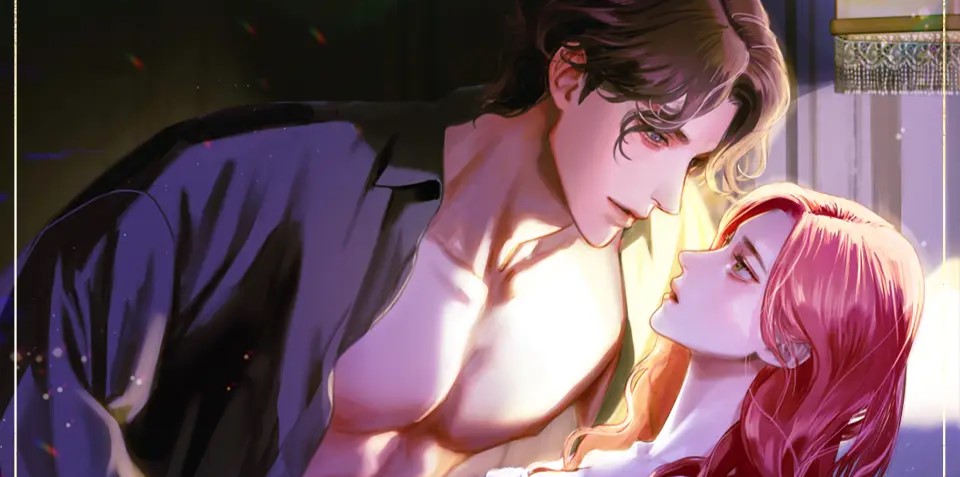The Sand Bride - Chapter 20
* * *
How long had they walked? The desert, which had seemed endless, began to show signs of a path. It meant the capital was near—another two days, at most. A mix of relief and tension passed over the faces of the captives and bandits alike.
But dusk had already fallen, the sun replaced by the moon. Night had come. The bandits chose a spot and prepared to pitch their tents. Another day’s journey was over.
Esther untied the cloth binding her hair. She combed through the tangled strands with her fingers, shaking out the sand. As she dusted the grains from her body, a hand suddenly yanked her waist back, making her yelp.
“Quit the dramatics.”
The owner of the grip—strong enough to bruise—was, of course, Karzhen. Dragging her along, he settled in his usual spot between the campfire and his tent, atop a pile of plush animal pelts.
Pulled into his lap, Esther’s eyes darted nervously. Just as she feared, the bandits brought out food and liquor. At the sight of the drugged alcohol, her mouth went dry.
The sedative would only take effect after a few drinks. Tension stiffened her body. The captives glanced at her furtively. Esther forced herself to act natural.
She lifted the bottle and poured into the cup Karzhen held out. His lips touched the rim. Her heart pounded so loudly she feared he’d hear it. The sound of him swallowing was deafening in her ears.
Karzhen drank. Then, everything unfolded as before. The liquor vanished down the men’s throats, and when the drug took hold, they slumped over one by one. Confusion flickered across their faces as their comrades collapsed, but soon they too succumbed to a death-like sleep.
Karzhen’s face grew rigid. His sturdy frame swayed. His gaze locked onto Esther, who stared at the ground, pale. When he reached for her, she scrambled back.
“Go on.”
Then—
Karzhen let out a low, rumbling laugh.
“Try it. Run.”
Esther froze. Though he’d told her to leave, his hand clamped around her wrist like a vise. Even that single point of contact made her tremble as if a beast were pinning her down.
His familiar scent, the knowledge that he’d soon collapse—none of it eased her terror. Learned fear had taken root in her through his eyes, his hands, his very presence.
But she wasn’t alone. The other captives would escape with her. That comfort gave her courage.
Her eyes darted to the knife beside Karzhen. Even with newfound resolve, she was too afraid to leave a weapon near him. Who could say he wouldn’t stab her in his last moments of consciousness?
As the drug seeped into his veins, Karzhen watched her trembling fingers close around the hilt. His gaze seemed to say, Go on, try to kill me.
But Esther didn’t attack. She just grabbed the knife and ran to where the captives waited.
It wasn’t guilt or remorse that stayed her hand. Had she heard Karzhen was dead, or seen his corpse, she wouldn’t have mourned.
But harming him herself was different. He was the man who’d torn her father away, who’d violated her—yet despite her hatred, she lacked the courage to spill blood.
The sensation of flesh parting, of hot blood on her hands—she knew it would haunt her sleepless nights. More than anything, escape was her priority. Now that hope was within reach, she wanted no further entanglement with Karzhen, not even in death.
Clutching the knife, she sprinted to the gathered captives. They looked her over, noting the blade—still clean, untouched by blood—before turning away. Just before they moved out, their leader approached and whispered.
“What happened to him?”
Him could only mean Karzhen. Esther answered quietly.
“H-He’s… asleep.”
“I see…….”
The man nodded, then clapped her on the back. With a spirited grin at the group, he urged,
“Let’s move, quick! We can’t waste time.”
The captives nodded as one. Esther did too. Smiles of hope returned to their faces.
* * *
Esther and the former captives walked through the night. By dawn, exhaustion weighed on her like a physical force, but she endured. She had to.
If they could just reach the inn, she could return to Donova or find clues about her father. Though everyone was too tired to speak now, once they arrived, the tension would ease. Maybe then she could ask about him.
Following the sporadic signposts, they pressed on until sunrise—when the inn finally appeared in the distance like a mirage. Relief brightened their faces.
It was a waystation for traveling merchants and caravans. As they hurried closer, the sight of merchant carts and desert horses greeted them. Esther’s expression softened with relief. She truly believed their suffering was over.
What she didn’t know then was this: when faced with hardship, humans—especially the weak—could turn cold. For the sake of the majority, they would abandon anyone without hesitation.


